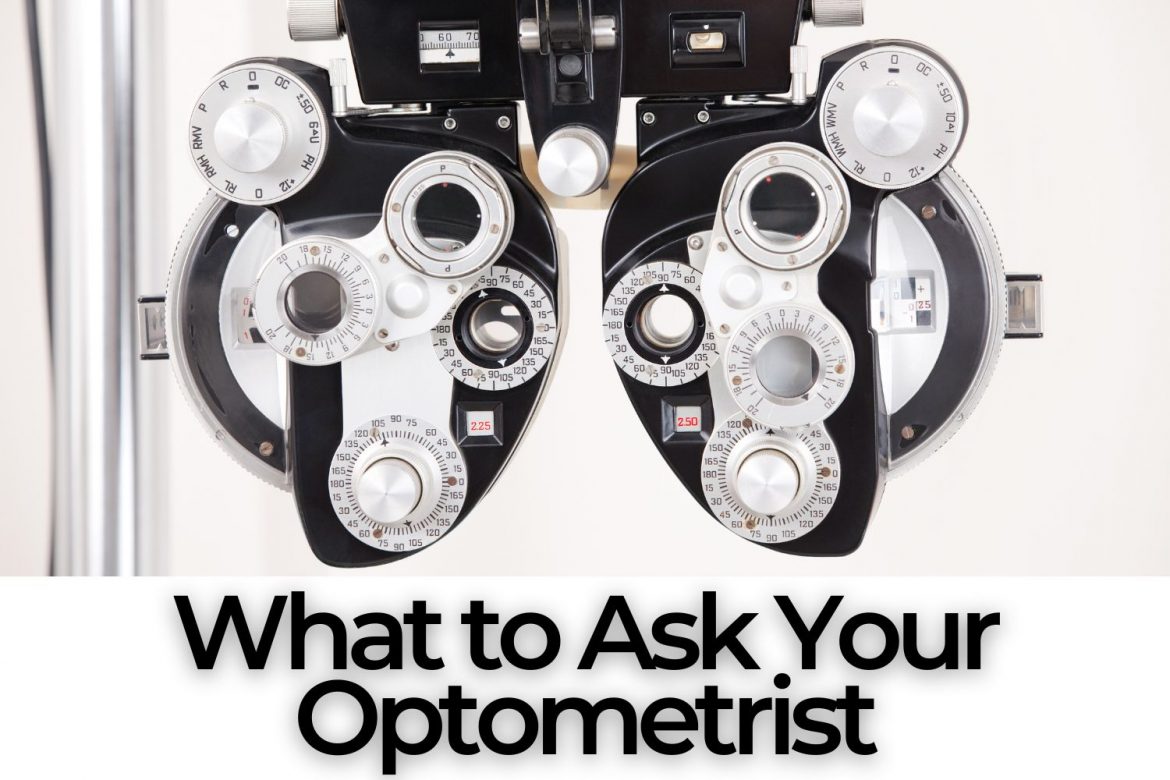
Will you soon be visiting your eye doctor?
Like appointments with any medical professional, it might be stressful. You may forget to ask important questions. It happens. In the interest of maintaining healthy vision, let’s talk about how to make the most of your visit to the optometrist.
Over 93 million U.S. adults are at high risk for vision loss. Only half have visited an eye doctor in the last year. So, it’s important to know what to ask during your eye appointment.
Here are some of the most important questions to ask your eye doctor at your next appointment.
What tests are you doing today—and what’s the purpose of each?
Routine eye exams typically consist of a number of tests designed to assess the overall health of your eyes, measure your current vision status, and check for diseases or conditions that have the potential to affect your vision.
Minimally, during a comprehensive eye exam, your doctor will perform a visual acuity test, a refractory test, and a test for glaucoma.
Here’s a brief summary of these standard eye tests and the purpose of each:
- Visual acuity
A visual acuity test measures how well you can see with each eye. This test typically requires you to cover one eye while reading or identifying letters or images of different sizes. Based on the results, your eye doctor will be able to tell how you see at various distances. - Refraction
A refraction eye test helps the optometrist determine the prescription strength that you require for glasses or contact lenses. This test requires that you look directly into a machine that exposes each eye to a series of different prescription lenses in an effort to determine which prescription strength is best for each of your eyes. - Glaucoma
A glaucoma test, also known as a tonometry test, tests for glaucoma by measuring the pressure within each eye. Optometrists test eye pressure by either using a machine to blow a quick burst of air into your eye or by using a special tool to gently touch your eye.
In addition to these three standard eye tests, a comprehensive eye exam might also include a visual field test to measure peripheral vision, an eye muscle function test to assess for any type of issue with the muscles of your eyes, and a pupil response test to see how your pupils react when light enters your eye.
Why (and how often) do I need to have my eyes dilated?
Your doctor might also want to dilate your eyes to check for other conditions including diabetic retinopathy and age-related macular degeneration.
While having your eyes dilated is an inconvenience, it’s the best way for eye doctors to identify serious eye conditions before it’s too late to prevent permanent eye damage and/or vision loss.
How often you need to have your eyes dilated depends on the health of your eyes and your overall risk for eye disease. While your optometrist will recommend what’s best for you, the National Institute of Health recommends a dilated eye exam every one to two years if you are over 60 years of age or have a family history of glaucoma. If you have diabetes or high blood pressure, it’s wise to have the test annually.
Do you see anything that increases my risk for eye disease?
There is a clear connection between your family and medical history and the health of your eyes. In fact, several very serious eye problems have been found to have a high likelihood of being passed on through families. Someone with a family history of age-related macular degeneration has 4X the risk of developing the disease, while a family history of glaucoma increases the risk 8-fold.
The same goes for current or pre-existing medical conditions. Medical conditions such as diabetes, high blood pressure, and autoimmune conditions all significantly increase your risk of eye health issues.
The good news is the earlier these conditions are detected, the better the chance of them being treated and prevented. In fact, with early detection, an estimated 90% of eye health conditions and associated vision loss are treatable and/or preventable.
Make sure to share, update, and discuss your complete family and medical history with your eye doctor at each comprehensive exam.
How often do you recommend I have a comprehensive eye exam?
Regular eye exams are an essential component of ensuring your long-term eye health. However, how often you require a comprehensive eye exam depends on a number of factors, including age.
The American Optometric Association recommends adults aged 18-64 considered asymptomatic or low risk for eye disease have a comprehensive eye exam at least once every two years. Adults over age 65 are recommended to have a comprehensive eye exam each year.
In addition to age, your eye doctor will also consider factors such as race and ethnicity, whether or not you wear contacts, current prescription, family health history, and your personal medical history when determining the frequency of your eye exams. Anyone considered at risk for eye health issues will most likely be recommended for annual eye exams.
A comprehensive eye exam can also provide important information about a host of potential health issues occurring in other parts of the body, including aneurysms, certain tumors, certain cancers, high blood pressure, and high cholesterol. Should your eye doctor observe issues that cause concern, they might need to see you more often or refer you to a medical professional for further evaluation.

